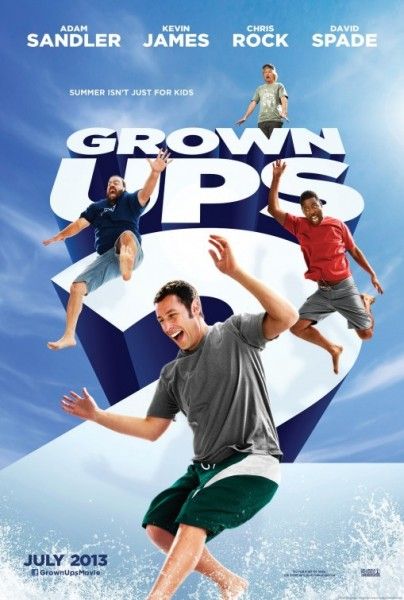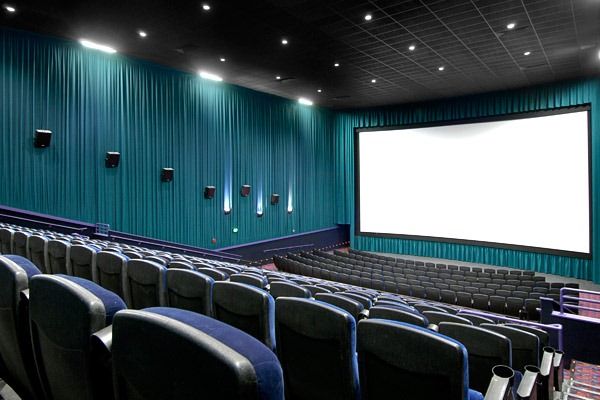2013 is almost over, and our site and many others feel the need to organize the past twelve months. This usually comes in the form of lists, i.e. the Internet’s preferred method of digesting information. Year-end lists are nothing new to any published medium, and the Internet’s endless hunger for new content demands more than one quantified evaluation. We’ll have a fair share of lists in the near future as the year winds down, but one you won’t find on Collider is “Worst of 2013”.
Hit the jump for more on why this pointless annual ritual needs to stop.
Trying to rank art is admittedly a silly endeavor. How do you compare movies from two vastly different genres? Blackfish doesn’t have a lot of laughs and This Is the End doesn’t have much to say on the matter of Sea World abusing orcas. At best, we can only compare movies through their ability to achieve their own goals. This Is the End is hilarious and Blackfish is persuasive advocacy. If they were on someone’s “Top 10” list, the reader could use the list as a guide. Hundreds of movies come out every year, and someone who saw plenty of these films selected ten based on a mix of tradition, a round number, and alliteration. If you trust the writer and/or are persuaded by the rhetoric, you can now seek out some movies. The act of constructing the list is silly, but the end result is useful.
“Worst of” lists, or their cousin “Most Disappointing” lists, don’t have that utility. They rarely, if ever, point out a movie that’s so bad, it’s good. They do absolutely nothing for the reader other than possibly entertain with a snarky comment, because if the Internet is missing anything, it’s a snarky comment (I just did my part by adding one more). At most, they can spark a negative, counterproductive discussion. It can only appeal to those who have seen the movie, and the responses will be either defensive or piling on. It’s chum in the heated waters of the Internet where arguments are rarely illuminative or transformative.
Even if it’s a more moderate “Most Disappointed” list, there’s rarely an in-depth post-mortem to examine the film’s flaws compared to expectations. It’s a brief “Here’s the potential, and here’s why it missed the mark, and now I’m upset.” It’s an analysis that the writer probably explained with more specificity in the actual review. If someone wants to talk about what’s disappointing, then perhaps a more worthwhile article is about how movies manufacture excitement through concept, star power, and marketing, and how it’s nearly impossible to go into a movie “cold”. But the purpose of these lists isn’t to provide a structured argument. It’s to beat a dead horse.
Unlike a “Top 10” list, a “Worst of” list can’t produce a positive outcome. It can’t function as a recommendation because it steers people away, which isn’t difficult. The list says, “Don’t see this movie!” and the reader responds, “I won’t!” and goes about his or her day. The people who write these lists clearly know enough about movies and see enough of them to feel passionately about the art form. It’s rare that someone who writes a “Worst of” list doesn’t also have a “Best of” list. These writers should know that bad movies, although they may be tough to watch, still have something to offer when it comes to teaching the viewer about filmmaking and storytelling. So why are these cinephiles discouraging others from seeing movies?
Because year-end lists, whether they’re positive or negative, are acts of vanity. If you want to put a nicer spin on it, they’re badges of pride. The only way to push past ego is to give the reader something worthwhile, and kicking a film that’s already been kicked is spite. These lists usually give only a paragraph per selection, so there’s no in-depth examination of why a film failed. That’s what the review accomplished. It’s a rehash that won’t enlighten nor will it have any affect on future movies. I think The Playlist and The Dissolve are two of the best movie websites, but singling out A Good Day to Die Hard is pointless. Everyone knows it’s bad, Bruce Willis will keep making movies, John Moore will still get journeyman work, and none of us will be surprised if there’s a sixth Die Hard movie because we’re all cynical enough to know how the film business works.
We chose this profession because we love movies, and I more than understand the frustration. I know it comes out in my writing every time I report on an obnoxious marketing maneuver or an ill-advised remake of a beloved classic or pretty much anything about Hollywood being Hollywood. That’s not to mention all of the bad movies I see. But there’s no need to go back, exhume the corpse, and kick it again. I wrote “Worst of” lists for years, but last year I realized I didn’t know why. I guess it was because other sites posted them, and I suppose the thinking goes that if we’re recapping the whole year, we also need to recap the bad as well as the good. And to be completely honest, it was an opportunity to be snarky and get easy laughs. I know my writing can be negative, but I also recognize that there’s already enough invective on the Internet, and I wish other cinephiles would stop making lists to remind us about the movies they hated and why they hated them.



